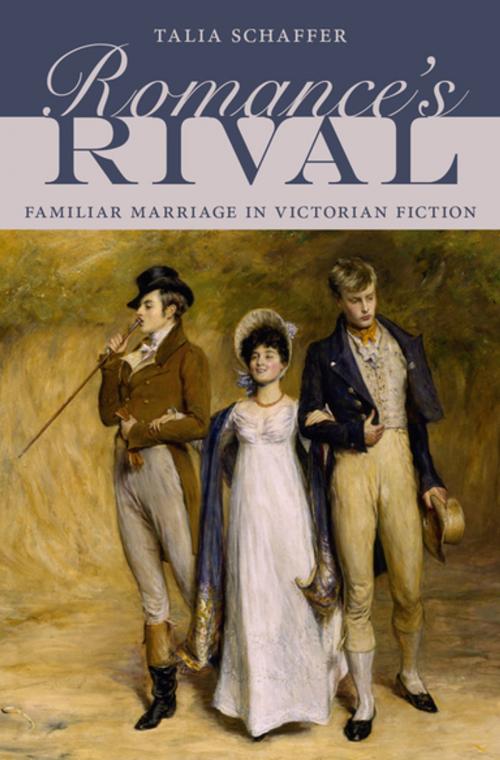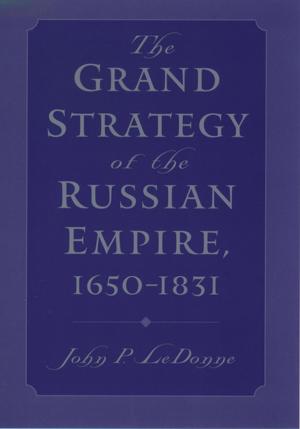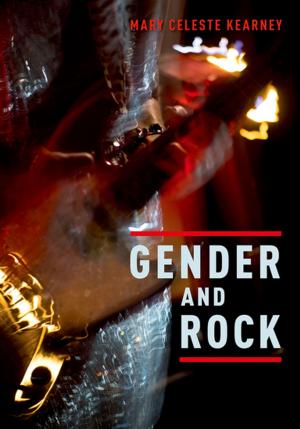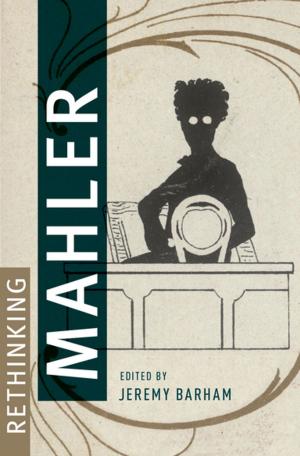Romance's Rival
Familiar Marriage in Victorian Fiction
Fiction & Literature, Literary Theory & Criticism, British, Nonfiction, History| Author: | Talia Schaffer | ISBN: | 9780190627515 |
| Publisher: | Oxford University Press | Publication: | February 2, 2016 |
| Imprint: | Oxford University Press | Language: | English |
| Author: | Talia Schaffer |
| ISBN: | 9780190627515 |
| Publisher: | Oxford University Press |
| Publication: | February 2, 2016 |
| Imprint: | Oxford University Press |
| Language: | English |
Romance's Rival argues that the central plot of the most important genre of the nineteenth century, the marriage plot novel, means something quite different from what we thought. In Victorian novels, women may marry for erotic desire--but they might, instead, insist on "familiar marriage," marrying trustworthy companions who can offer them socially rich lives and futures of meaningful work. Romance's Rival shows how familiar marriage expresses ideas of female subjectivity dating back through the seventeenth century, while romantic marriage felt like a new, risky idea. Undertaking a major rereading of the rise-of-the-novel tradition, from Richardson through the twentieth century, Talia Schaffer rethinks what the novel meant if one tracks familiar-marriage virtues. This alternative perspective offers new readings of major texts (Austen, the Brontës, Eliot, Trollope) but it also foregrounds women's popular fiction (Yonge, Oliphant, Craik, Broughton). Offering a feminist perspective that reads the marriage plot from the woman's point of view, Schaffer inquires why a female character might legitimately wish to marry for something other than passion. For the past half-century, scholars have valorized desire, individuality, and autonomy in the way we read novels; Romance's Rival asks us to look at the other side, to validate the yearning for work, family, company, or social power as legitimate reasons for women's marital choices in Victorian fiction. Comprehensive in its knowledge of several generations of scholarship on the novel, Romance's Rival convinces us to re-examine assumptions about the nature and function of marriage and the role of the novel in helping us not simply imagine marriage but also process changing ideas about what it might look like and how it might serve people.
Romance's Rival argues that the central plot of the most important genre of the nineteenth century, the marriage plot novel, means something quite different from what we thought. In Victorian novels, women may marry for erotic desire--but they might, instead, insist on "familiar marriage," marrying trustworthy companions who can offer them socially rich lives and futures of meaningful work. Romance's Rival shows how familiar marriage expresses ideas of female subjectivity dating back through the seventeenth century, while romantic marriage felt like a new, risky idea. Undertaking a major rereading of the rise-of-the-novel tradition, from Richardson through the twentieth century, Talia Schaffer rethinks what the novel meant if one tracks familiar-marriage virtues. This alternative perspective offers new readings of major texts (Austen, the Brontës, Eliot, Trollope) but it also foregrounds women's popular fiction (Yonge, Oliphant, Craik, Broughton). Offering a feminist perspective that reads the marriage plot from the woman's point of view, Schaffer inquires why a female character might legitimately wish to marry for something other than passion. For the past half-century, scholars have valorized desire, individuality, and autonomy in the way we read novels; Romance's Rival asks us to look at the other side, to validate the yearning for work, family, company, or social power as legitimate reasons for women's marital choices in Victorian fiction. Comprehensive in its knowledge of several generations of scholarship on the novel, Romance's Rival convinces us to re-examine assumptions about the nature and function of marriage and the role of the novel in helping us not simply imagine marriage but also process changing ideas about what it might look like and how it might serve people.















